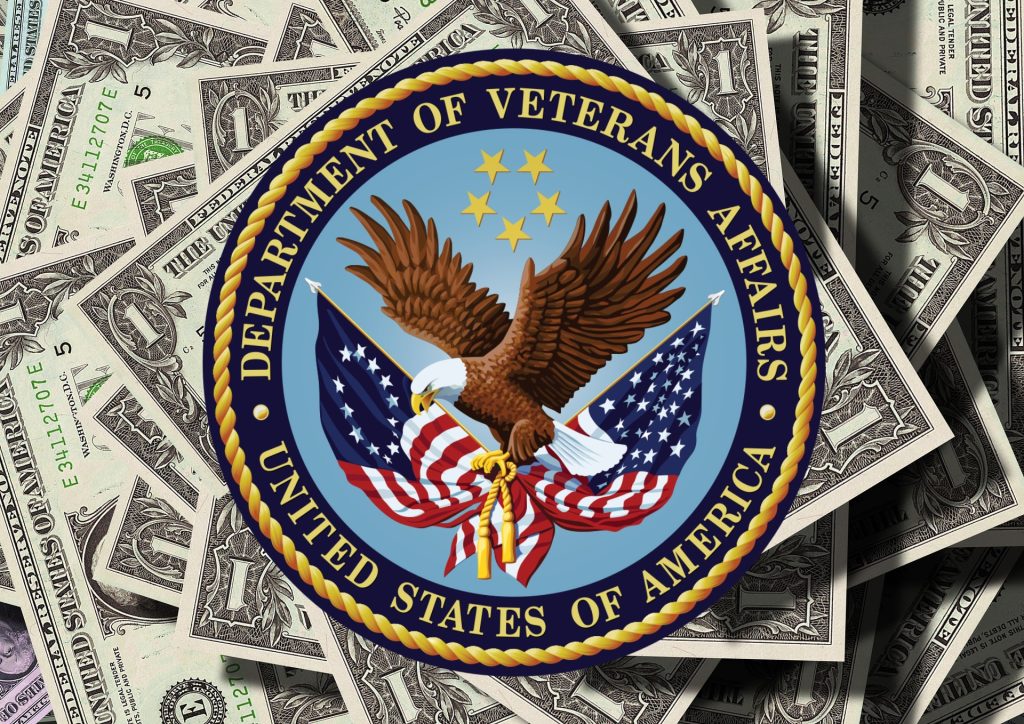

A whistleblower has come forward to suggest the compensation system of the Department of Veterans Affairs (VA) is on a path of failure, growing at a rate that could cause it to implode.
Sonny Fleeman is a federal whistleblower, combat veteran, and Declaration of Military Accountability signatory. Emphasizing that his views are his own and he does not represent the government, any employer, or any organization, he told The Gateway Pundit that the VA is clearly on the brink of disaster without intervention.
In September 2023, Fleeman began requesting 20 years of VA claims through the Freedom of Information Act (FOIA). His initial goal was to explore potential links between VA disability claims and COVID-19 shot-related injuries. Given to Steve Kirsch, the founder of Vaccine Safety Research Foundation, for analysis in September 2024, the data was confirmed to have elevated some health conditions by 50 percent or more when compared to the same conditions in 2020. What’s more, according to Kirsch, “The VA is ignoring all these safety signals and not warning veterans about the possibility the shots could be unsafe.”
In more recent months, Fleeman began reviewing the data more broadly, uncovering a cost-related catastrophe within the VA compensation system that is growing at an unsustainable rate. He warned, “The looming disaster demands urgent attention, as without intervention, the system will collapse.”
Data provided by Fleeman and reviewed by The Gateway Pundit reveals that one of the most significant trends is the exponential growth of disability claims related to post-traumatic stress disorder (PTSD). By applying the VA’s rating schedule to the available data, Fleeman estimated how much costs have escalated through the last two decades. For 2003, he calculated a $3.65 billion annual cost and a $72.8 billion lifetime liability. Twenty years later, in 2023, annual costs rose to $26 billion with a $520 billion lifetime liability.
“PTSD cases skyrocketed from over 490,000 in 2012 to nearly 1.4 million in 2024, creating billions in obligations,” he shared. With the average annual compensation for PTSD continuing to increase, he explained, this single condition represents “one of the most significant and rapidly growing liabilities.” And by his estimation, “PTSD-related liabilities are on track to exceed one trillion dollars within the next decade.”
This is not simply “a financial inconvenience,” Fleeman argued. Rather, “it’s a ticking time bomb.” While noting that the VA system was established to provide fair compensation to veterans, he also shared that “the unchecked growth of liabilities like PTSD is threatening its very foundation.”
To confirm his findings, Fleeman submitted a FOIA request to the VA in November 2024 to disclose the liability for each individual diagnostic code he has reviewed. For him, “This kind of data would make it possible to analyze the financial impact of specific conditions, like PTSD, with clarity.” However, to date, all he has received in return are generic responses claiming the VA does not track liability data by diagnostic code.
“The cost of each diagnostic code must be analyzed because it reveals the true financial drivers of the VA compensation system,” he asserted. “Combined ratings artificially reduce overall liability and obscure the real source of rising costs.”
For example, a second “significant driver of claims” — particularly for PTSD — is military sexual trauma (MST), Fleeman noted. According to him, the VA’s regulations allow claims based on “behavioral markers” in the absence of direct evidence of MST, as outlined in 38 CFR § 3.304(f)(5).
These markers include, but are not limited to:
- Disciplinary actions (e.g., demotions, reprimands)
- Substance abuse (e.g., alcohol or drug dependency)
- Behavioral changes (e.g., withdrawal, isolation, or sudden personality shifts)
- Requests for transfer or medical tests like pregnancy or sexually transmitted infection (STI) screening
“While this approach is intended to help veterans who may not have documented evidence of MST,” Fleeman reluctantly disclosed that “it also lowers the burden of proof, which increases the likelihood of claims being approved based on circumstantial evidence.”
Sadly, he fears MST could be another example of how the VA’s compensation system is “being stretched to its limits.” He explained, “Combined ratings hide explosive growth by blending conditions into a single number, masking the true costs driving the system into financial chaos.”
“Diagnostic-specific costs, not combined ratings, reveal what’s driving expenses,” Fleeman said, explaining that “combined ratings reduce liability on paper but fail to show which conditions are creating the crisis.”
“Every diagnostic code represents a distinct liability, and the VA’s refusal to share precise liability figures should raise the concern of every member of Congress and taxpaying citizens about transparency,” he argued. “It suggests they may be avoiding disclosure because the full scope of these liabilities would reveal a financially unsustainable system.”
To help grasp the scale of the PTSD-related liability issue, Fleeman said, “a $1 trillion liability for a single diagnostic code is equivalent to the entire annual GDP of a country like the Netherlands or Saudi Arabia.”
For him, “The VA’s non-adversarial process, while veteran-friendly, has become a double-edged sword that threatens the very stability of the institution. If even a fraction of the VA’s other diagnostic codes followed similar trends, he pointed out that “the total liability will dwarf the Department of Veterans Affairs’ annual budget, leaving future generations of veterans and taxpayers at extreme risk for failure.”
Without intervention, Fleeman is gravely concerned the VA will not be able to meet its obligations in the decade ahead. “This is no longer just about the veterans of today, [but] it’s about ensuring the sustainability of care and benefits for veterans in the future,” he shared.
The post Whistleblower: The Clock is Ticking for the Department of Veterans Affairs to Rein in Burgeoning Liabilities, Part One appeared first on The Gateway Pundit.





